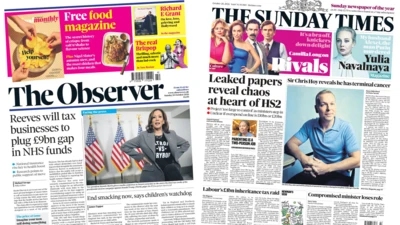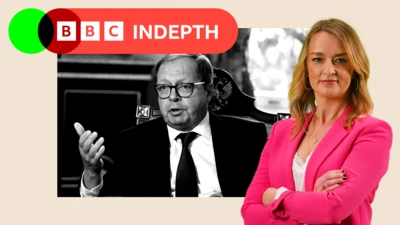We've updated our Privacy and Cookies Policy
We've made some important changes to our Privacy and Cookies Policy and we want you to know what this means for you and your data.
Who is Sinn FĂ©in leader Mary Lou McDonald?
Image source, Â鶹ԼĹÄ/PA
Mary Lou McDonald: The basics
Date of birth: 1 May 1969
Family: Married Martin in 1996, two sons
Education: Notre Dame School Dublin, Trinity College Dublin, Dublin City University University of Limerick
Career: Consultant for the Irish Productivity Centre, a researcher for the Institute of European Affairs
Parliamentary constituency: None, she is a member of the Dáil (lower house of Irish parliament) for Dublin Central.
Who is she?
Ms McDonald's upbringing is very different from other leading Sinn FĂ©in politicians.
She comes from a middle-class background and was brought up in Rathgar, viewed as one of Dublin's most desirable suburbs.
Ms McDonald attended a private fee-paying school before studying English literature at Trinity College.
She is a member of the Dáil (lower house of Irish parliament) for the Dublin Central constituency, a seat she won in 2011.
Before winning that seat, Ms McDonald was the party’s first MEP, elected to the European Parliament in 2004.
When did she become Sinn FĂ©in leader?
Ms McDonald became vice-president of Sinn FĂ©in in 2009.
Then in 2018 she became party president, taking over from Gerry Adams who had held the position for 34 years.
Since then, the Dublin politician has sought to distance her party from criticism about its historic links to IRA violence.
Where is Sinn FĂ©in at the moment?
Sinn FĂ©in is an all-island party which representatives in every level of government across the island of Ireland.
Its core belief is that Ireland should be united as one country.
The party traces its origins to 1905 but the modern party's roots are in the early 1970s.
Throughout the Troubles in Northern Ireland it was the political wing of the Provisional IRA.
A number of prominent Sinn FĂ©in representatives have been convicted IRA members.
Since the early 1980s the party increasingly pursued electoral politics.
In 2003 it overtook the SDLP to become the biggest nationalist party in Northern Ireland.
At Westminster it has a policy of abstention, meaning none of its MPs take their seats on the green benches.
It had seven candidates elected at the last general election.
The party has said it will not run candidates in four of Northern Ireland's 18 constituencies.
The Irish republican party will not contest Belfast East, Belfast South & Mid Down, Lagan Valley and North Down.
The party is currently the largest party at Stormont and at local government level in Northern Ireland and will be looking to replicate that in this election.
In the Dáil in Dublin, the party is the main opposition.
Top Stories
More to explore
Most read
Content is not available








